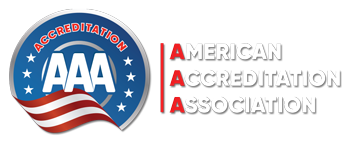If a patient’s system has been damaged by sickness or injury, then competence is even more critical in the medical industry. It is a mark of trust given to medical laboratories, an accreditation that demonstrates your commitment to providing a proficient and quality service in every element of your business.
On any given day of the year, there are around 300,000 tests run in medical labs, and nearly all clinical paths rely on patients having access to pathology services. In order for a laboratory to be ISO 15189 accredited, it must demonstrate its integrity, impartiality, and capability. More information about this critical ISO standard can be found here.
The Importance of ISO 15189
The international standard for medical laboratories is ISO 15189:2012. As a result of certification, laboratories are able to improve their quality management systems, demonstrate their expertise, and demonstrate compliance with relevant industry and legal standards.
For your ISO 15189 accreditation, a paper outlining how your laboratory can meet each requirement to the highest possible standard will be created as part of the process. With the help of this helpful guide, each member of your team will know exactly how to complete the jobs to the required standard, which is ISO-accredited.
Why ISO 15189 is Good for Medical Labs?
Being ISO 15189 accredited is highly encouraged if you work in the medical industry.
So that your customers don’t wind up putting their health at risk due to inconsistencies in your services, it’s important to get an official certification of your instruments’ competence and quality, which will assist keep your customers’ faith in you intact.
It also shows stakeholders that you are serious about protecting their data by receiving accreditation.
Is Compliance with ISO 15189 a Requirement?
Despite the fact that ISO 15189 accreditation is not required in every jurisdiction, it’s a good idea to verify your local rules to make sure. Accreditation of laboratories is critical in the field of public health and should never be disregarded.
Getting your organization up to date on all the complicated legislative standards that a medical laboratory must follow is part of the accreditation process. As part of your ongoing commitment to best practice, the ISO will apply any new laws or regulations as part of its culture of continuous improvement.
What are the Advantages of Being ISO 15189 Certified?
Here are just a few of the many advantages that ISO 15189 provides to medical laboratories.
Reducing the risk
Systems that are based on best practices will be more stringent. Especially in laboratories dealing with sensitive information, complex technology, and issues relating to people’s health, identifying and planning for potential hazards can help decrease them substantially.
Cost-saving
Your laboratory will save money on retesting by ensuring that the results are technically valid. As your productivity rises, you’ll be able to take advantage of other ways to save money.
The team’s morale has risen.
Staff errors and other preventable errors are reduced by the standard. By recognizing and encouraging your staff’s technical knowledge, you’ll improve their motivation as well as their performance.
Compliance with the Law
ISO 15189 ensures that your clinical services are safe, dependable, and of excellent value by incorporating legislation and industry standards into your medical laboratory. To stakeholders and decision-makers who recognize and appreciate the dedication, this conveys trust. In the event of a legal challenge, you may rest assured that the framework will back you up.
Improvement in the Long Run
Once you’ve achieved ISO 15189 certification, you’ll be well on your way to creating new programs based on the best practices you’ve learned along the way. Measurement of quality improvement and consistency is supported by the framework.
Worldwide Recognition
You get more than a reputation boost when you’re certified by a globally recognized standard. International recognition is critical for ISO 15189. The International Laboratory Accreditation Cooperation has established a series of mutual recognition agreements that will allow laboratories accredited to ISO 15189 to have their certificates and test reports recognized in over 80 countries. As a result, not only will your work assist medical health in your country, but people all over the world will benefit from it.
Process Quality
When the scope of certification is as extensive as ours, it is included in every lab procedure. Accreditation requirements are well-understood by laboratory workers. When these quality standards are implemented in all parts of laboratory work, even those not covered by accreditation, it becomes second nature. This dedication to high standards benefits the lab’s customers in the long run.
Quality assurance professionals are the heroes of the accreditation process in the lab. It is their job to design and execute systems that make it easier for analysts and others to meet accreditation criteria. Maintaining the essential records and making them easily accessible is their job. We’ve gone from primarily paper records to all kinds of technological record-keeping and everything in between.
Some parts of quality assurance are made simpler by electronic records, but others are made more difficult. Staff in charge of quality control make sure that any modifications to the reference techniques are properly tested and implemented into the lab procedures. Overall, they keep tabs on everything that occurs in the lab. It’s an ongoing process that will never be complete.
Conclusion
Inadequate services are a major contributor to the high frequency of medical mistakes. The consequences of using equipment that isn’t suitable for its intended use can be dire, and with so much at risk, it’s a good idea to constantly evaluate the quality and expertise of your services. Every year, over 1700 people die as a result of medical mistakes in England alone, while there are over 237 million of them.
This number can be significantly lowered with the help of an ISO 15189 certification. When a laboratory is certified as ISO-compliant, it indicates that it has met the technical competency criteria necessary to produce the highest quality results in the safest manner possible. Apply today and get accredited!
